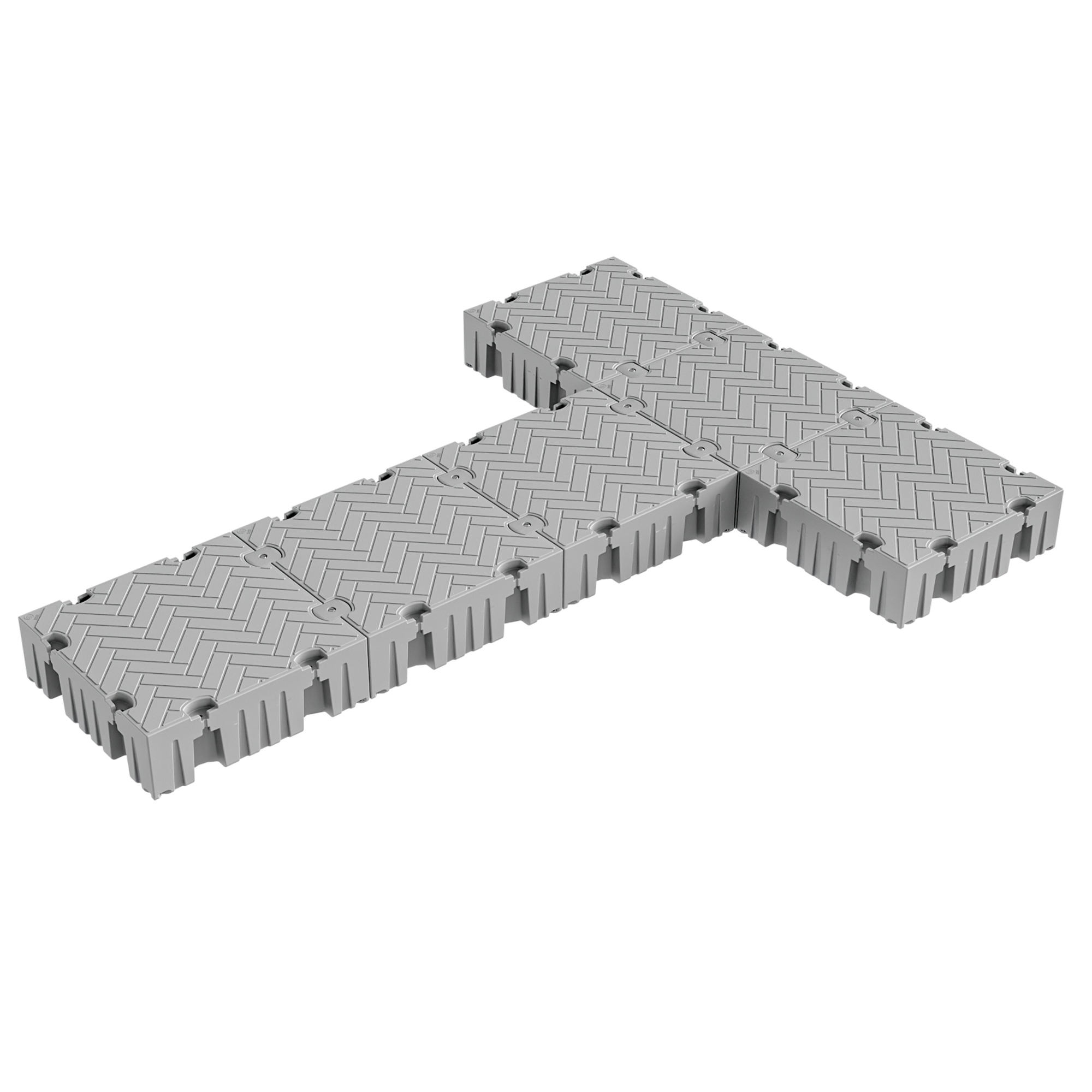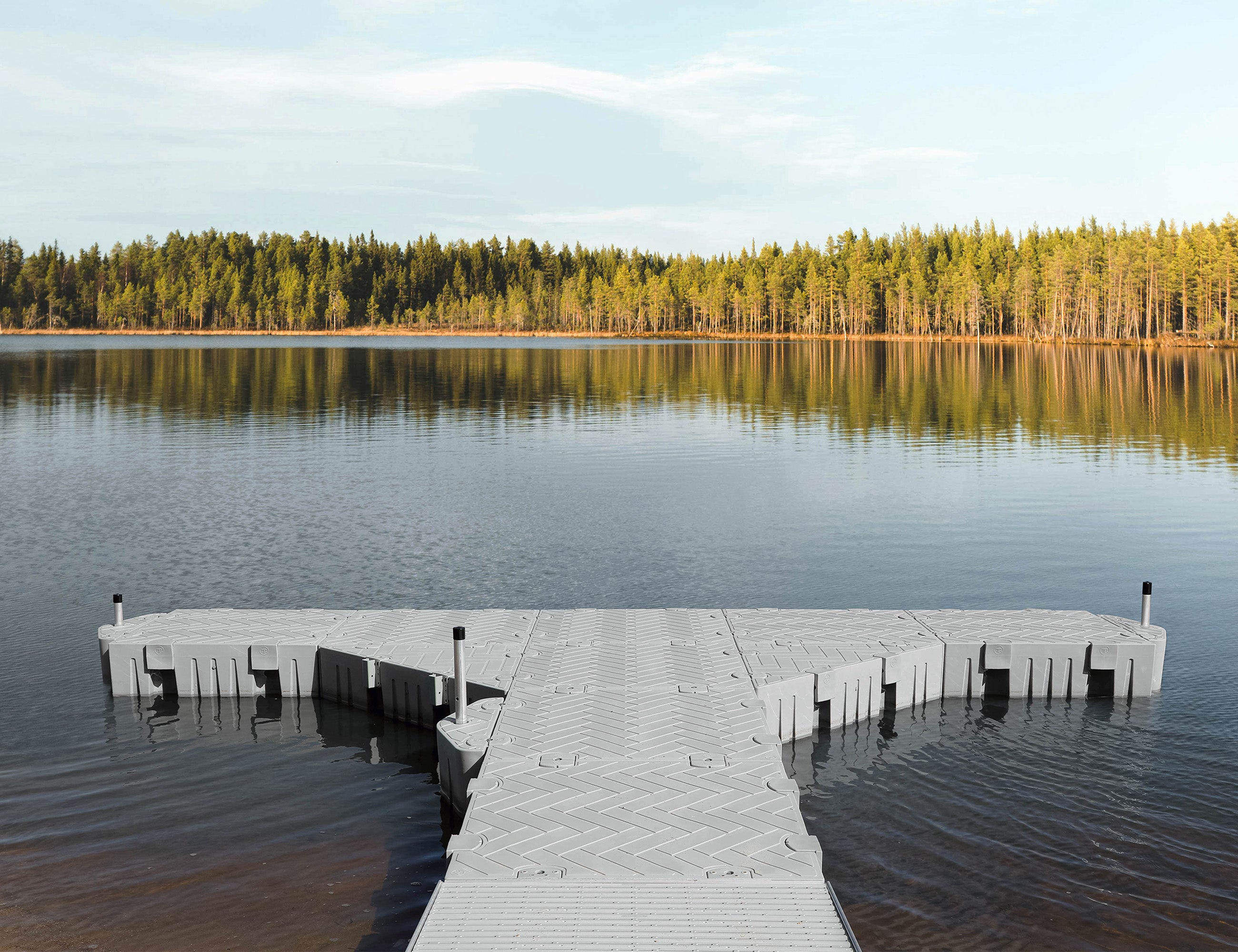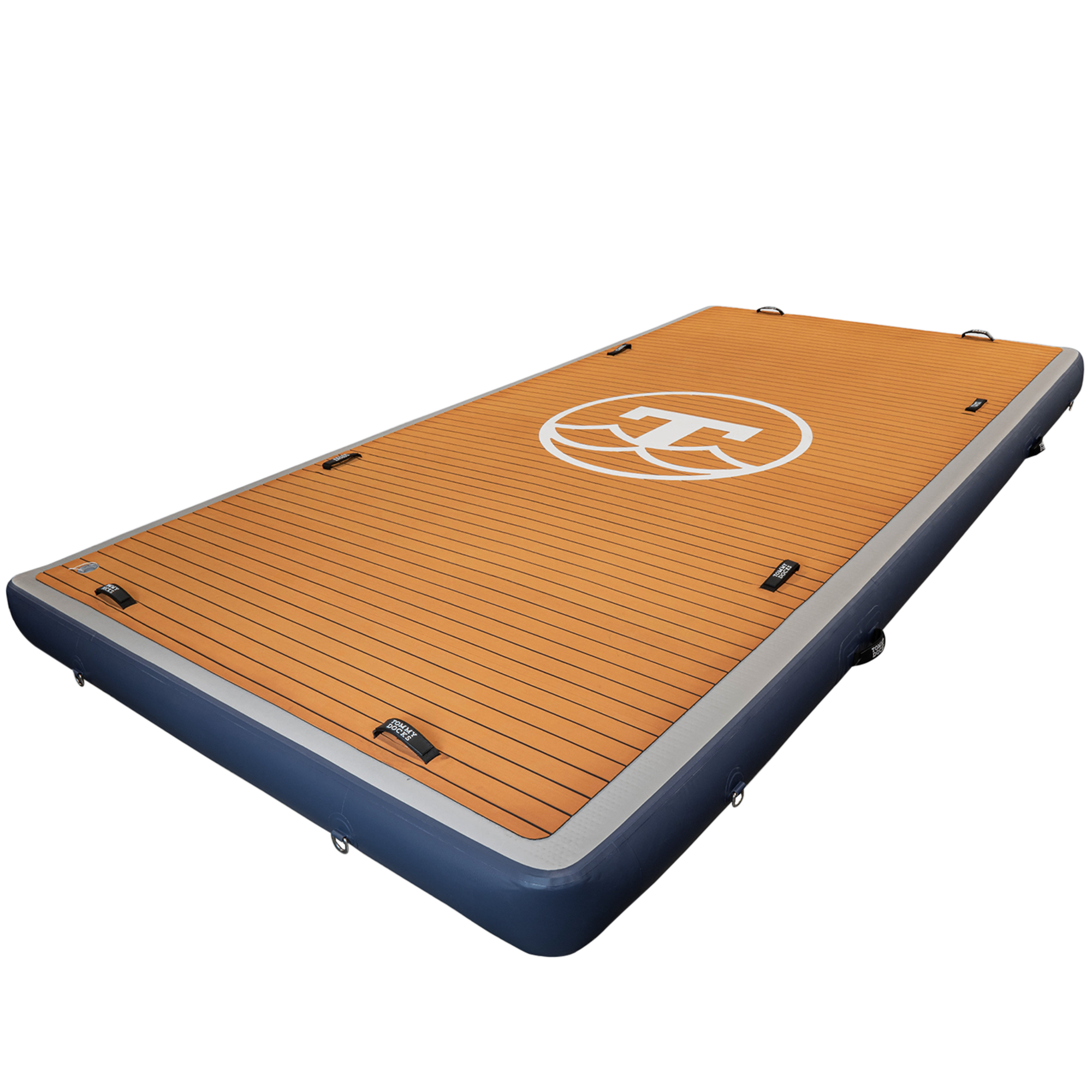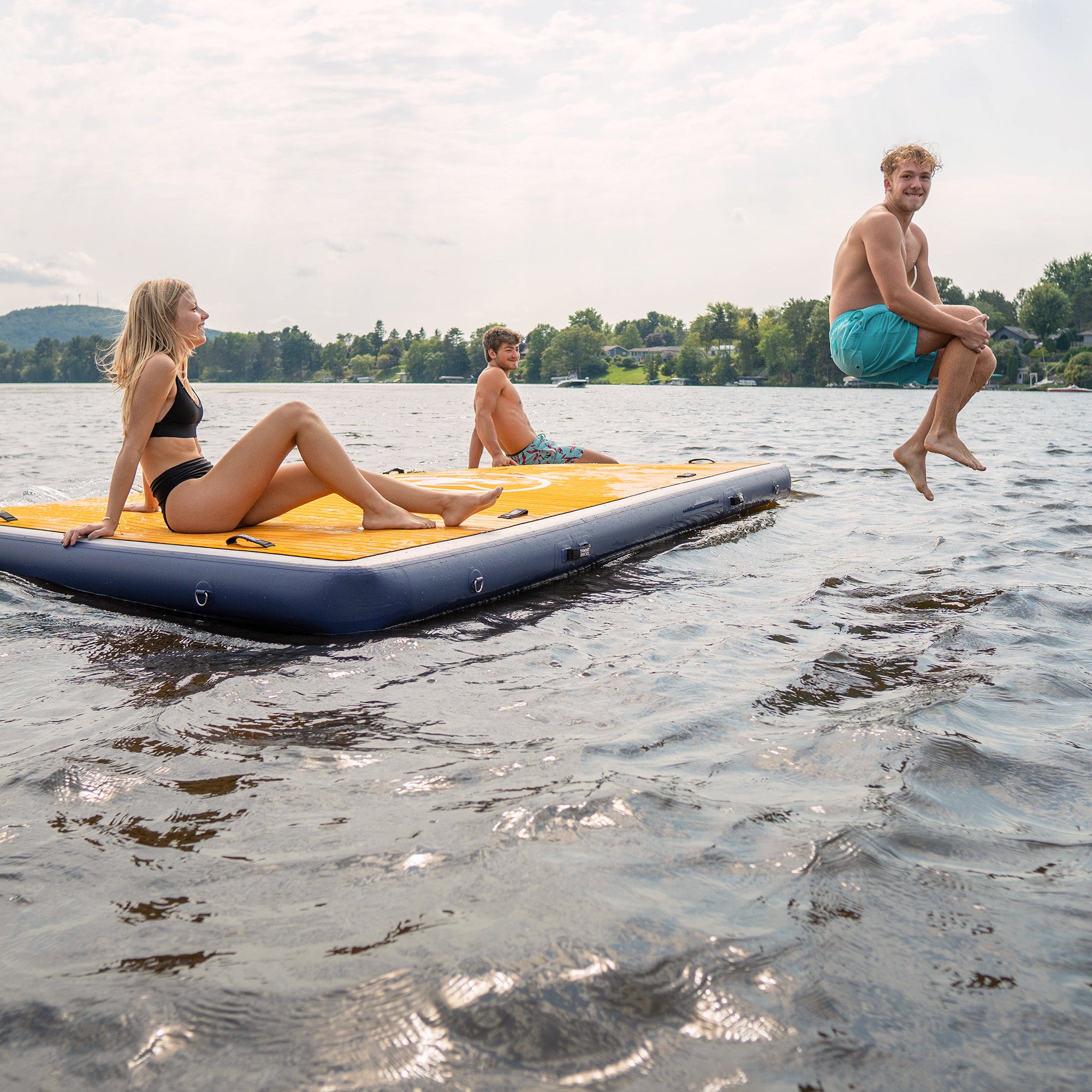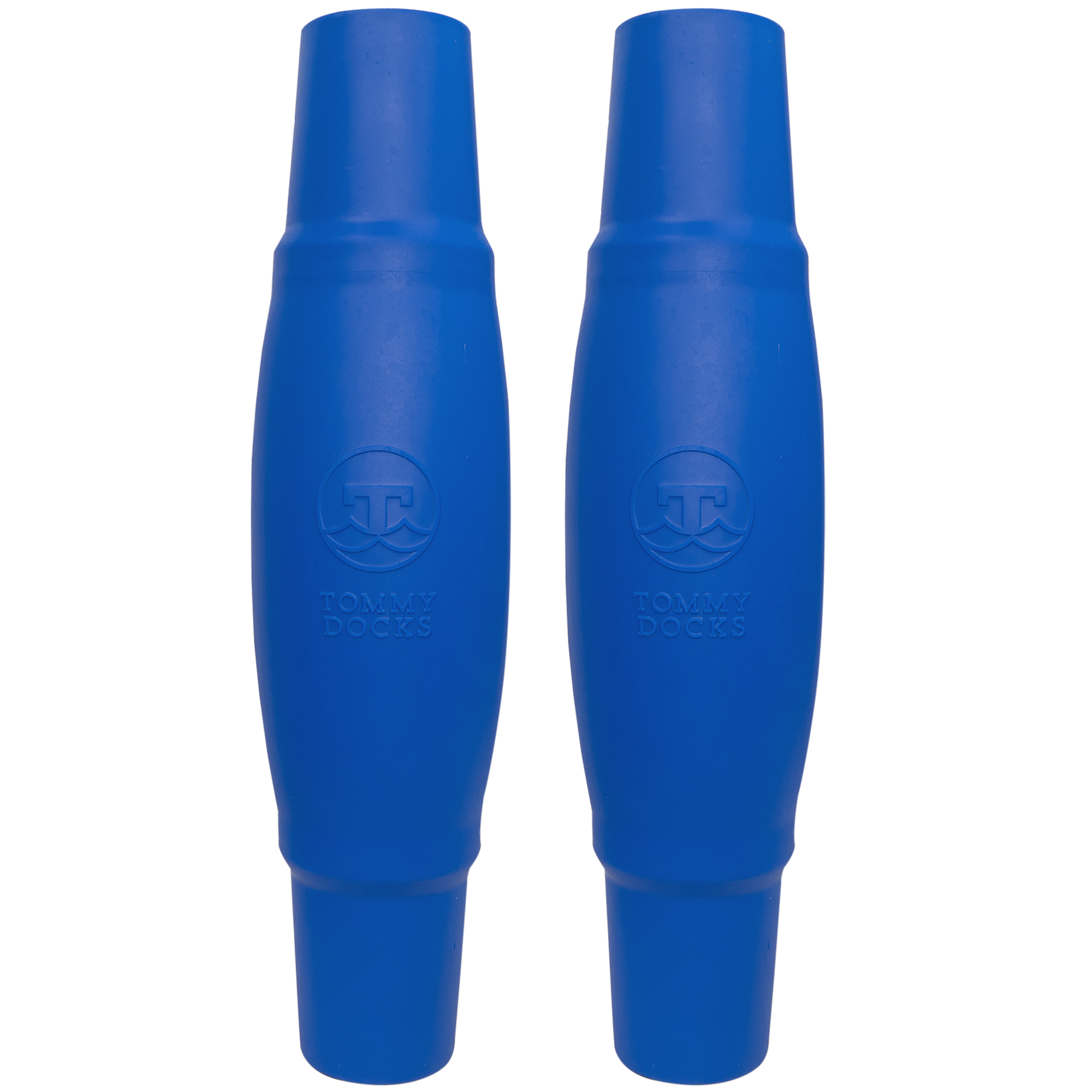Whether you have property located on a river, a lake, or the oceanfront, a private dock offers all sorts of benefits to a homeowner. However, if you want a personal dock but aren’t sure which to choose, you may wonder what the differences are between floating and non-floating docks.
We’ll share all the information you need to pick the right dock for your property while ensuring you spend less time on maintenance and more time enjoying the water.
Benefits of Investing in a Private Dock
You probably have a reason or two that you want to install a dock, but it’s always a smart idea to know what all the advantages are. When it comes to docks, there are many of them. Having one installed, whether it’s floating or not, offers the following:
- Expedient access to the nearby water
- No need to pay for slip or storage fees
- Option for personalized accessories and construction
- No limits on slip availability
- Increased property value
- Ability to use the dock for fishing, socializing, swimming, kayaking, and relaxing
Considering Your Specific Dock Needs
There are several things to be aware of before choosing a floating or non-floating dock. Docks come in several types and can be made of various kinds of materials. Another critical factor to consider is where the dock will be placed since bottom conditions and the presence of tides will determine the best place to situate a dock and what materials will stand up to the location.
Every type of docking system is going to have benefits, but some of them are going to work better to meet your needs than others. It all comes down to a simple question. Is a floating or non-floating dock the best choice? Non-floating docks are permanent, so they secure into the ground while keeping the structure in place for years on end. Floating docks are semi-permanent and can be removed, expanded, or reconfigured.
Consider where the dock is going to go while you choose the right dock type for your property. Some questions to ask yourself include:
- What are the bottom conditions and depth of the water?
- What’s your budget? How much can you spend on maintenance?
- Do you prefer a permanent structure or one that can be removed?
- What are the water surface conditions? Is there lots of boat traffic or are storms common?
- How many boats need to dock at one time? What about kayaks and other items?
- Is the dock going to experience ice in the winter when the surface freezes?
- Does the water level change quickly to limit the usage of the dock?
- Will you be working with a company to install the dock or doing it yourself?
Whether the dock is going to be in a commercial or residential area, realize that your needs might change as time goes on. Someone who has a home on the lake might choose a floating dock, for instance, to have the option of taking it down later. Others might prefer nonfloating docks that are designed with a specific configuration. There are advantages to either option.
The Difference Between Floating and Non-Floating Docks
You can guess by the name that a floating dock is one that floats on the water. Instead of resting on wooden pilings, it just sits on the surface of the water. Those who plan to swim near the dock may find floating docks to be the best option since they are more accessible to swimmers. These docks are also more versatile since they can be used in any water depth or attached to the shoreline or pilings.
When you choose a floating dock, it’s also a simple proposition to change the configuration if you get tired of the current look and function. Sections can be removed, and the dock itself can be repositioned into a different location. A floating dock is also typically less expensive and easier to install on your own. However, you’ll feel the water moving underneath you, which not everyone enjoys.
A non-floating or permanent dock is a whole different type of structure. This type of dock doesn’t rest on the water. It’s instead built onto the top of pilings while the pilings are secured to the bottom of the water where the dock is placed. As with floating docks, there are several advantages to permanent docks. They are more protected and tend to last longer than the alternative.
Stationary docks are great for areas with many boats since they remain secure when the water is moving. They also tend to work well for those who want to hang out on the dock with friends and family members. Non-floating docks are better in shallow water than floating docks, and these docks are more comfortable to bring boats to for individuals inexperienced with steering boats.
Deciding on the Right Style of Dock for Your Property
There are reasons to choose both types of boat docks, so it all comes down to your personal preference. It’s up to you to decide which of the two options will work best for your needs. However, those who are in areas with lots of watercraft or shallow waters will find a nonfloating dock has more advantages.
Those in deep waters who want an inexpensive option may find the floating dock is right for them. Also, there are semi-permanent docks if you really can’t decide between the two. Consider all your options to be sure you make the right decision for years of fun.
Purchasing a High-Quality Boat Dock
Whether you want a traditional dock or you want to customize your new dock to fit your personality, Tommy Docks offers systems to meet your needs. With various options, including full dock packages, dock sections, dock hardware, and dock floats, everything you need can be found in one place.
In addition to everything you need to install a dock, we also offer a selection of dock accessories to bring style to your new structure. This will make it even more fun to spend some time in the water. If you’re ready to get started, visit our website to see all your options!
Contact Tommy Docks today for any of your Dock Kits, Dock Hardware, or Dock Accessory needs!


